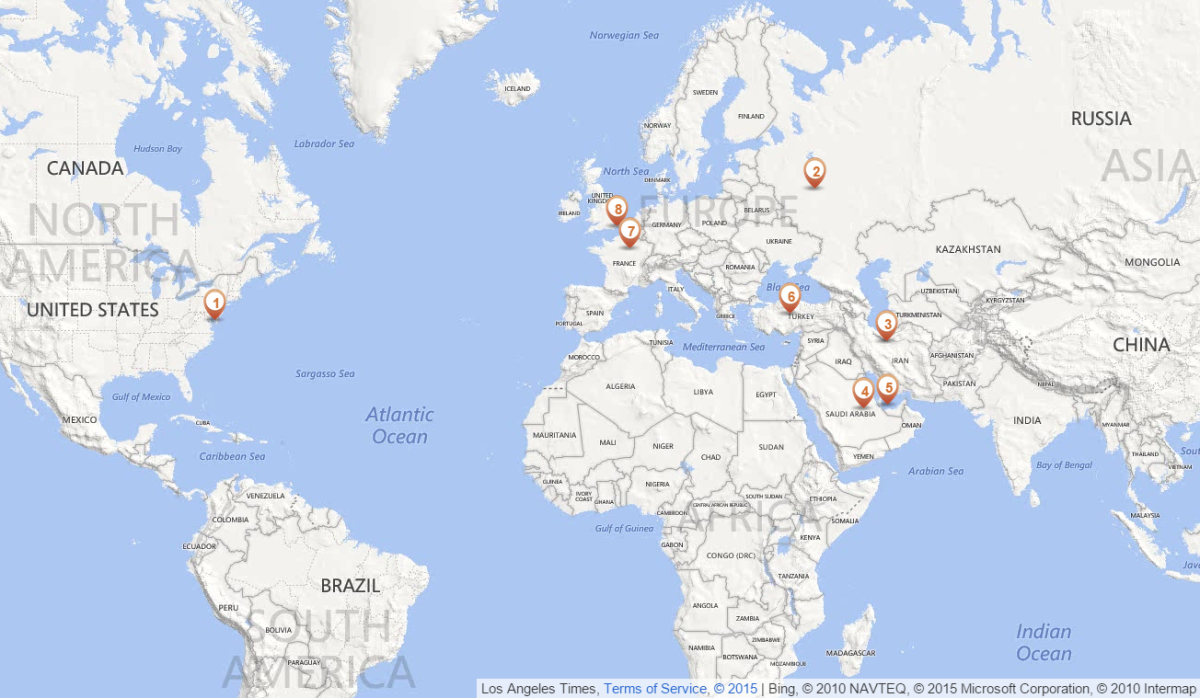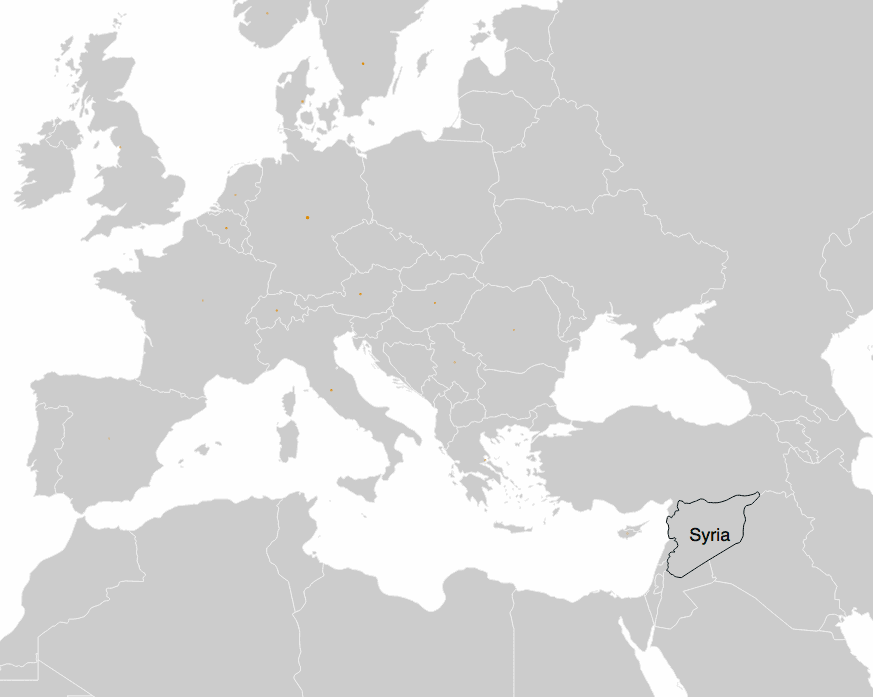Who’s who in Syria: A look at 8 key players in the war
- Share via
Syria's bloody and intractable civil war became even more complicated this week when Russian warplanes started attacking rebel positions in support of the country's embattled government.
What began in 2011 as a mostly peaceful uprising against Syrian President Bashar Assad has grown into a multisided war of attrition in which alliances are constantly shifting and an array of foreign powers is pursuing diverse and sometimes conflicting objectives.
The fighting has killed an estimated 250,000 Syrians, driven millions to flee their homes and country, and given rise to the violent extremist group Islamic State.

Here are some of the main foreign players and whom they are fighting.
1. United States
The United States is leading an international coalition that has conducted hundreds of airstrikes against Islamic State militants in Syria and neighboring Iraq since last year. The U.S. has also provided limited support, including weapons, training and special forces assistance, to some of the more moderate rebel factions trying to overthrow Assad. But these groups are outnumbered and outgunned by more radical Islamist factions. A separate Pentagon program to train and equip a Syrian proxy force to fight Islamic State has been beset with problems. The first graduating class of fighters was ambushed by the Al Qaeda-affiliated Al Nusra Front when it entered northern Syria this year. The next group gave the militants six pickup trucks with mounted machine guns and some of their ammunition in exchange for safe passage, the Pentagon disclosed this week.
2. Russia
Russia says its attacks in support of Assad's government target positions held by Islamic State. However, U.S. officials and Syrian opposition activists say the Russians aren't discriminating between the militants and other groups arrayed against Assad. The Kremlin argues that Islamic State won't be defeated without shoring up Assad's government, the Kremlin's chief Arab ally in the Middle East. Russia, along with China, has also used its veto power on the United Nations Security Council to block efforts to sanction Syria. That has put it in direct conflict with the U.S., which views Assad as the source of Syria's problems and has demanded that he step down.
3. Iran
Iran has been Assad's most important backer, providing funding, weapons and other critical aid. When the Assad government started losing control over parts of Syria to rebel groups in 2012, the Iranian-backed Hezbollah militia in Lebanon sent fighters to support Assad's forces. Iran has also dispatched military advisors to Syria.
4. Saudi Arabia
Frustrated that the United States has not acted more forcefully against Assad, Saudi Arabia and other Sunni Arab states have been bankrolling a number of rebel groups fighting the Syrian government, which they view as a proxy of Shiite-led Iran. The kingdom and its regional allies have also provided warplanes and other support to the U.S.-led coalition fighting Islamic State, which has taken aim at the Saudi royal family and its control over Islam's two holiest sites, Mecca and Medina.
5. Qatar
Like other Arab states, Qatar has provided funding and military aid to a number of Syrian rebel groups. But it has been at odds with Saudi Arabia over which groups to support. Although Qatar rejects any intimation that it provides help to Al Qaeda, regional diplomats and analysts contend that the country has ties with Syrian factions that coordinate with the group's affiliates and share their aim to establish an Islamic state in Syria. Qatar has used its contacts with Al Nusra Front, which may be through intermediaries, to help negotiate the release of foreign hostages. The country also plays host to a U.S. command center, where the coalition's strikes in Syria and Iraq are coordinated.
6. Turkey
Turkey has been a reluctant ally in the U.S.-led campaign against Islamic State. Until July, it refused to allow coalition warplanes to use Turkish air bases to launch attacks in Syria. Turkish jets joined in the bombing campaign for the first time in August. At the same time, however, authorities in Ankara renewed airstrikes against separatists from the Kurdistan Workers' Party, or PKK, whose allies in Syria provide the most reliable ground forces working with the anti-Islamic State coalition. Turkey denies accusations that it has provided tacit support to the extremists. But fighters from numerous Syrian rebel factions have flowed across the border since early in the conflict, along with weapons and black market oil.
7. France
France was the first European country to launch airstrikes against Islamic State in Iraq. But the country resisted getting drawn into coalition operations in Syria because it didn't want to help Assad. It launched its first strikes on Syrian territory in September.
8. Britain
The British Parliament voted against taking military action in Syria and the country has directed most of its efforts on behalf of the coalition to targeting Islamic State forces in Iraq. In August, however, Britain carried out a drone strike in Syria in which two of its citizens were killed. Prime Minister David Cameron presented the strike as self-defense, saying there was evidence the militants were planning attacks against their homeland.
Read our series on Fleeing Syria
'We want to escape but we fear the sea': Exile in Egypt
'My life is just a memory': A mother's wrenching choice
'Thank God, we are alive!' A desperate migration
Where have Syria's refugees gone?
Sign up for Essential California
The most important California stories and recommendations in your inbox every morning.
You may occasionally receive promotional content from the Los Angeles Times.









